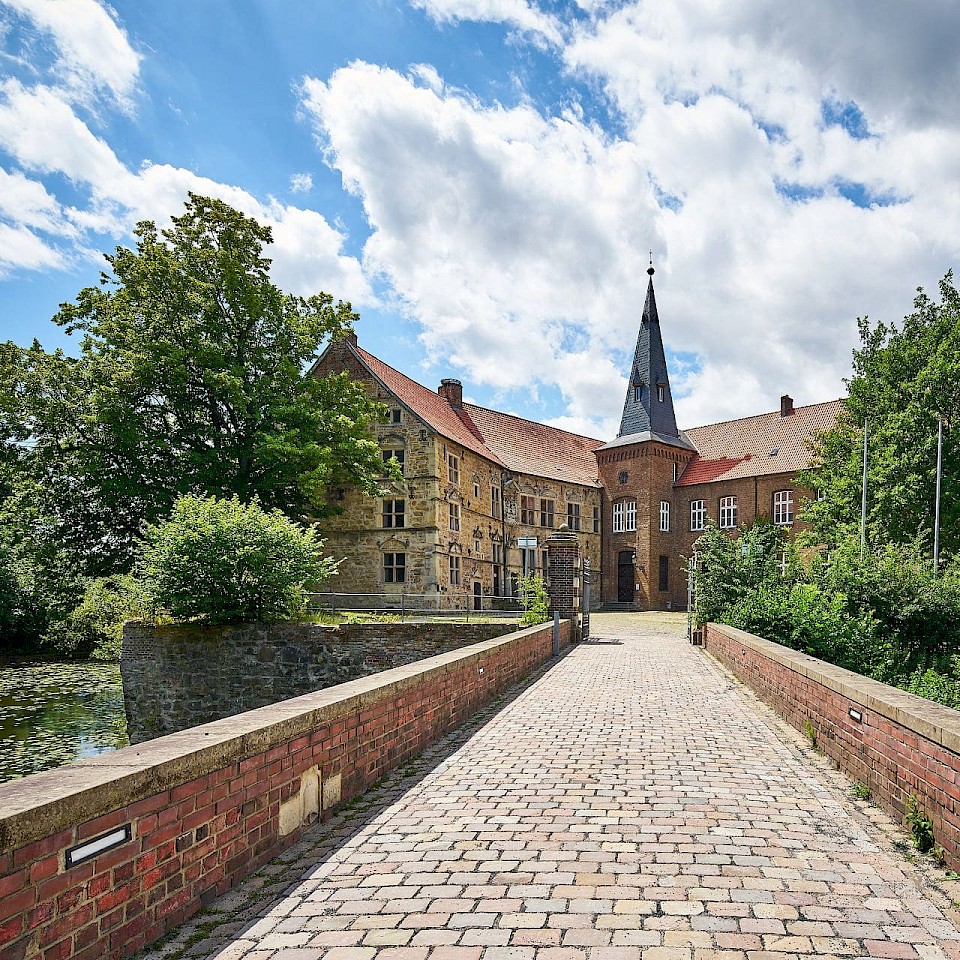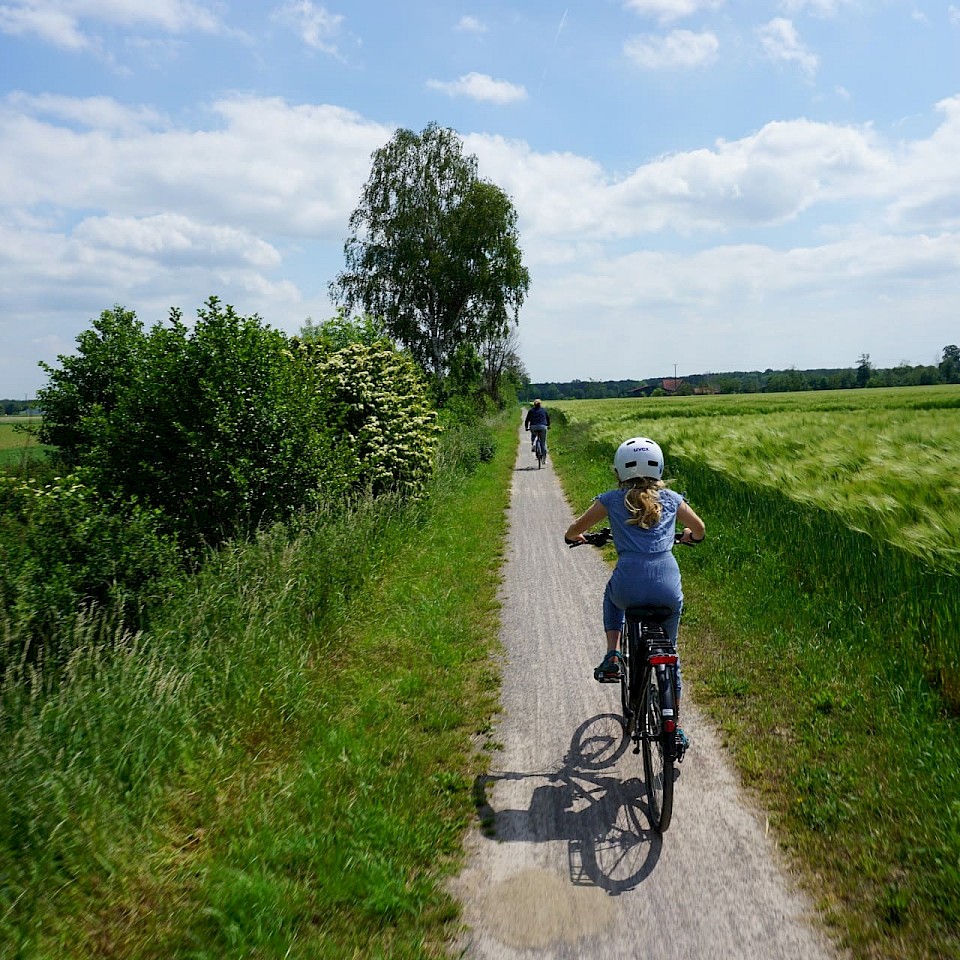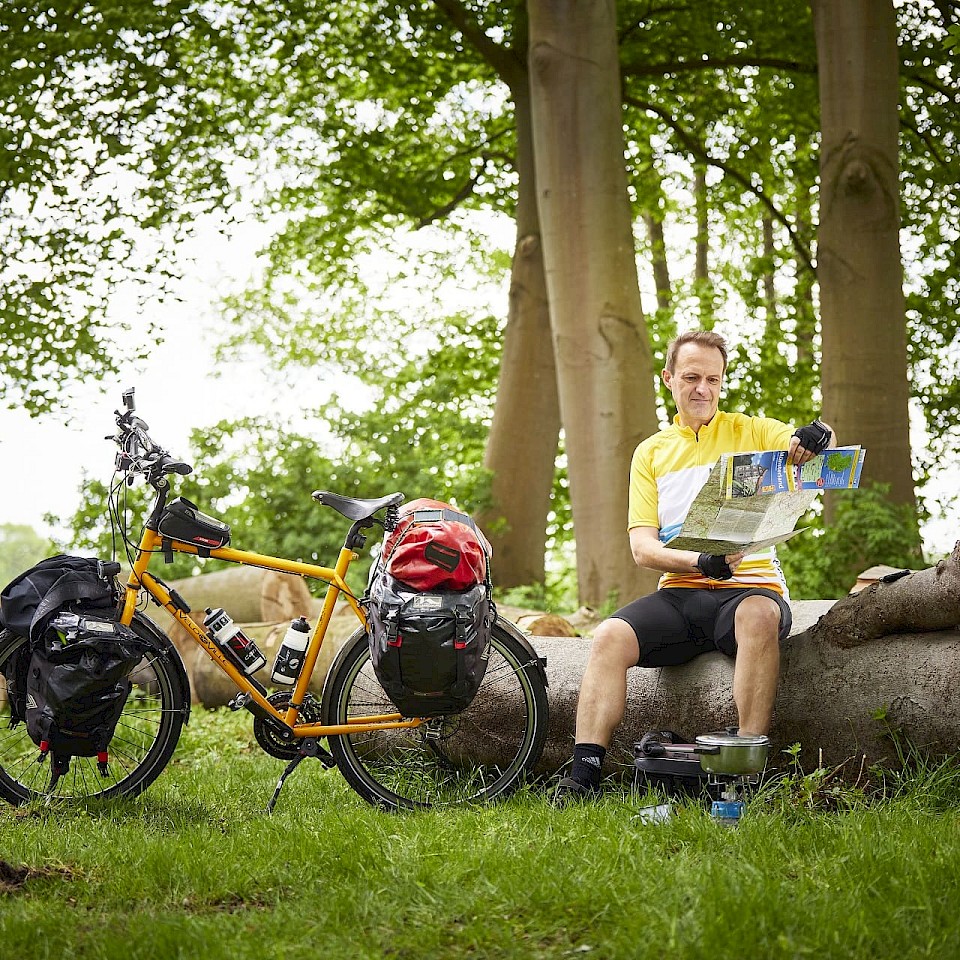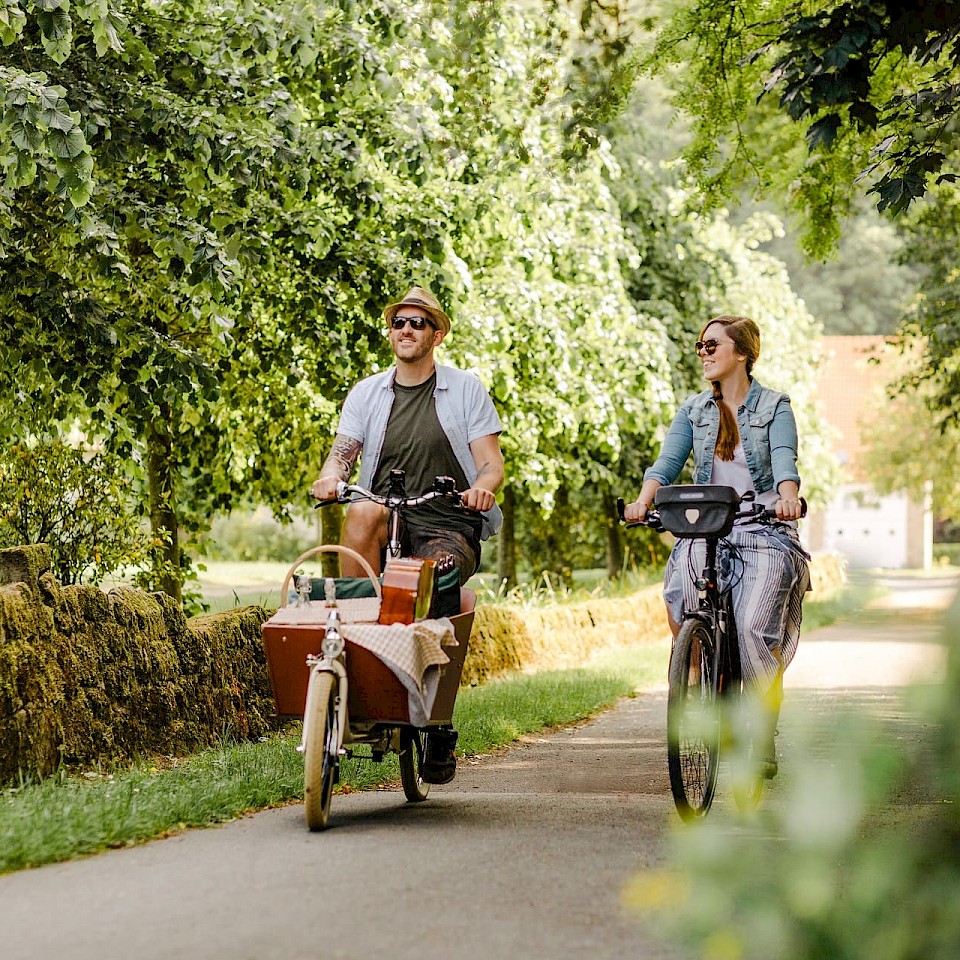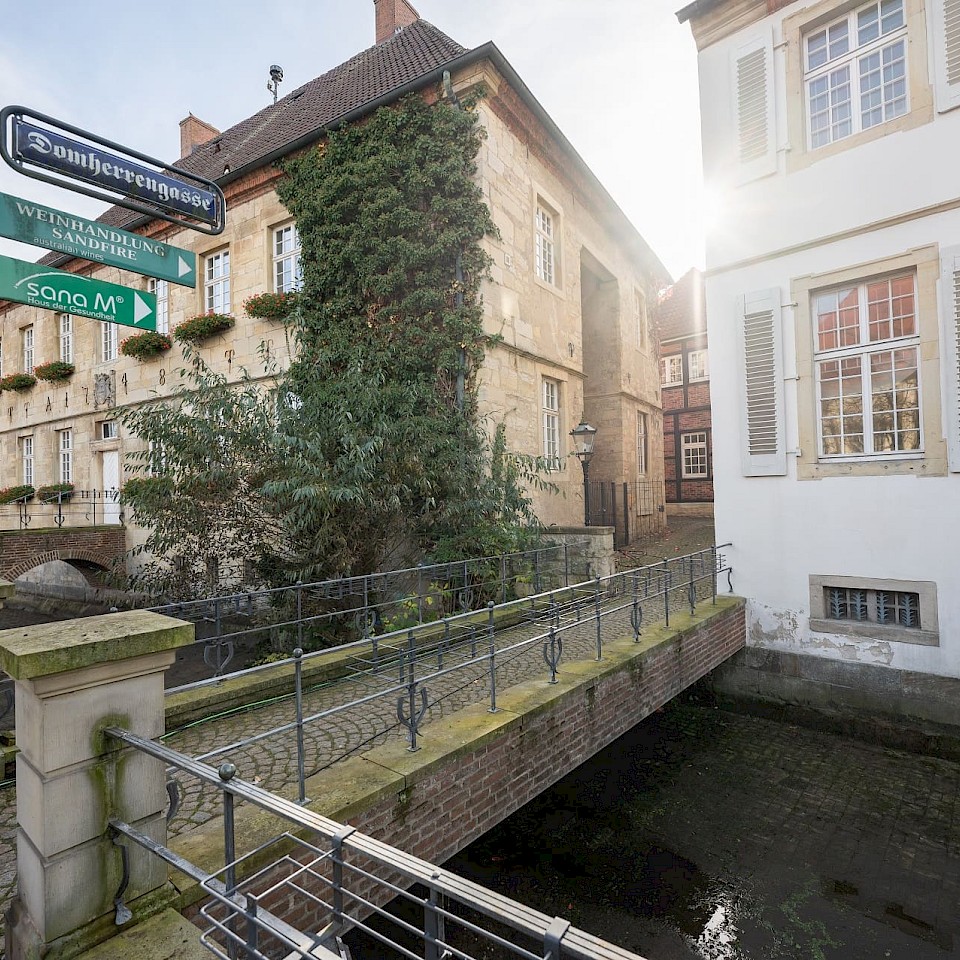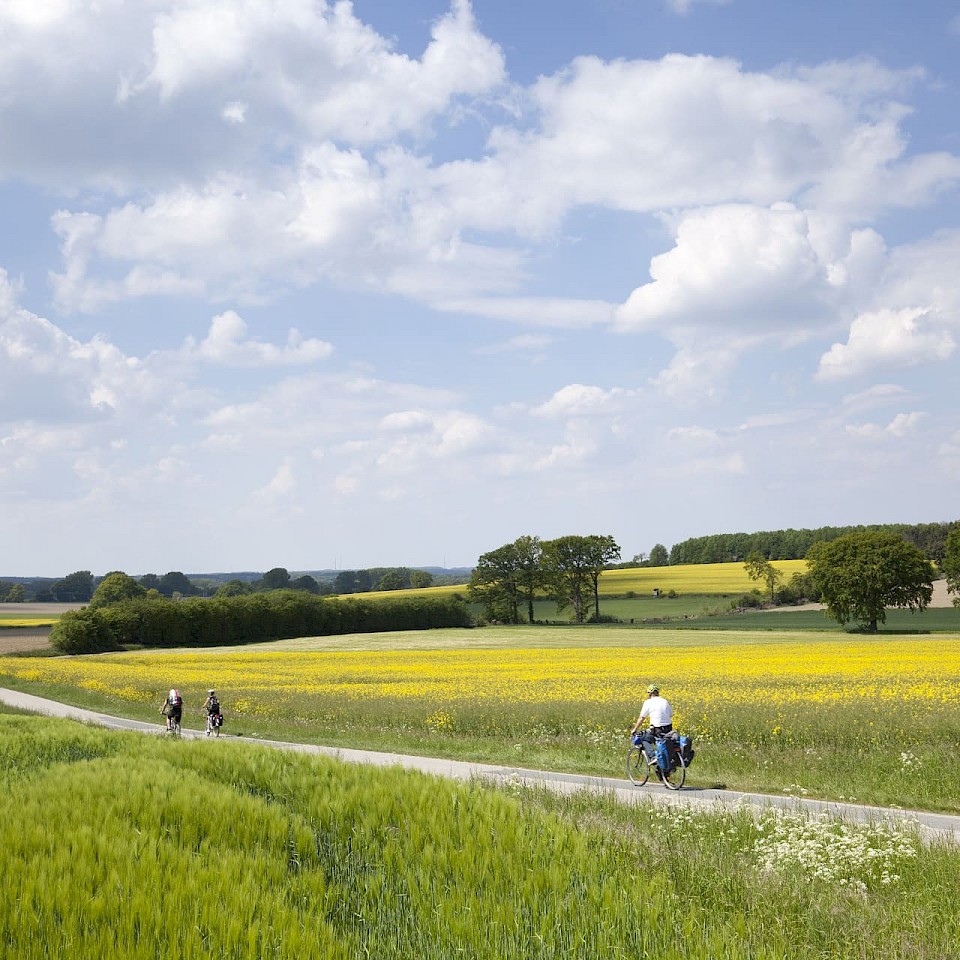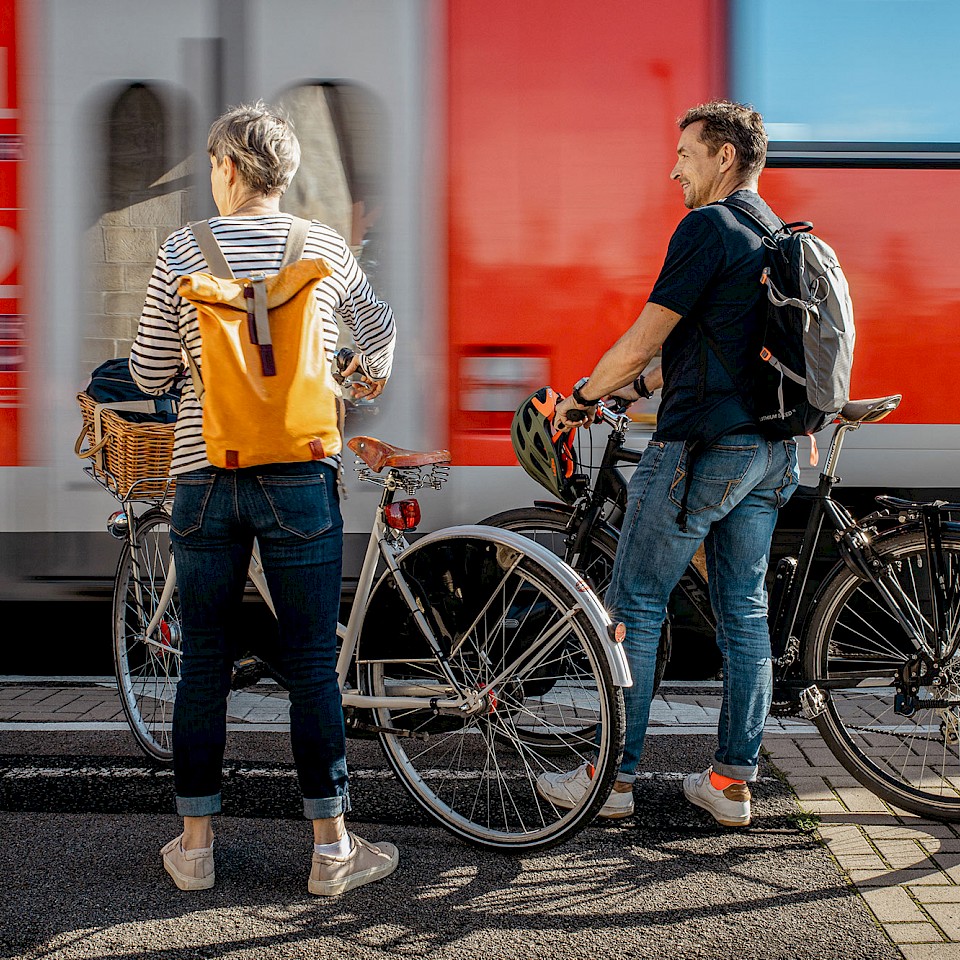Günter Dieker in portrait

© Münsterland e.V./Cornelia Höchstetter
Cycling instructor for the traffic turnaround
From police officer to cycling instructor: that is Günter Dieker's way of life since he retired. Born in Düsseldorf in 1957, he has lived in Nottuln since 1993. He ended his professional life with the criminal police in Münster four years ago. Since then, the man from Nottuln has been more involved than ever: in the French town twinning of Nottuln and St. Amand-Montrond, as a tour leader in the Münsterland district association of the Allgemeiner Deutscher Fahrrad-Club e. V. (ADFC) and as a volunteer cycling instructor in the cycling school ofthe ADFC Nottuln. Since 2022, everyone can learn to ride a bike there.
"It's fun to be on a bike among like-minded people. I want to pass on this passion."
Mr Dieker, why is it important to you to convince people to cycle?
Because the bicycle is the means of transport of choice and the healthiest one at that. In addition, we need the bicycle for the traffic turnaround. I want to show that many everyday journeys are also possible by bike. This only works if people enjoy cycling - otherwise they won't switch voluntarily. That means: the framework conditions have to be right, cycle paths, cycle network - an infrastructure that cars take for granted. Of course, the ability to cycle safely is important.
How did the idea of the Nottulner Bicycle School come about?
The ADFC Münsterland e.V., to which we belong as a local group, had a cycling school for many years. We wanted something like that for Nottuln too. Together with two other colleagues from the local group, we had ourselves trained as cycling instructors. We were joined by a colleague who had already been working in Münster for years and was moving to Nottuln. The search for a suitable training ground was difficult. After a discussion with the head of the Liebfrauenschule, the possibility arose to practise on their premises. Originally, the idea was to offer courses for refugees who had never learned to ride a bike. Then people who had been afraid after an accident or who hadn't ridden a bike for decades came forward. Our oldest student was over 80 years old and thanked us by saying: "You have given me a new life!"
How does one learn to cycle with you?
After a detailed initial interview, the pupils sit down on our special training bikes - we can remove the pedals. Just like on a running bike, it is important to get a feeling for balance and to practise braking. The biggest problem is that adults think too much. Some are afraid of riding faster - but the faster the bike rolls, the more stable it is. When they feel more confident, the pedals come in. Starting, braking, stopping. They practise large curves, which get tighter and tighter until they reach a slalom around the traffic cones. Slow driving and one-handed driving are also on the syllabus, as are traffic rules. The basic course lasts ten times 90 minutes. The highlight for everyone is the moment when we leave the playground. Almost always, the next trip is to the bicycle dealer...
Which tour is suitable for beginners?
We like to use the field paths into the Stevertal as a premiere. It's important to have low-traffic routes with few gradients so that the focus is not too much on shifting gears. First I ride ahead, then I wave everyone past - and the faces start to beam. At first, I don't recommend longer distances than 15 or 17 kilometres. In Nottuln, the ADFC offers shorter tours on Mondays.
What is the motivation of the cycling students?
The over 80-year-old could hardly walk, but wanted to have mobility that would increase her circle of action. The youngest student was in her early 50s and wanted to learn to cycle to organise her free time. For others, environmental and climate protection is a reason to switch to two-wheelers for short distances. Some also come to take a safety training course with their pedelec.
"A life without a bicycle is unimaginable for me."
What role does the bicycle play in your life today?
A life without a bicycle is unimaginable for me. I have a folding bike that I can take on the train without a ticket and a pedelec for all occasions: Thanks to the panniers, weekly shopping is just as possible as a holiday trip. My wife and I always take our bikes with us on holiday. Or we start our holiday on our doorstep: the SteverlandRoute is one of the most scenic tours, if only because of the renaturalised river sections. We have also been on the 100 Castles Route for ten days.
Where do you like to take a break?
On our after-work tours, a stop at an ice cream parlour is standard. My tips for the weekend are: Café Adelchen, Limbergen 9, in Dülmen - with a beer garden and a view of Lake Bulden. Otherwise, outdoor restaurants of all kinds, of which we also have a few in Nottuln.
What makes the Münsterland a cycling region for you?
The many cycle paths, the fact that agriculture adapts to cyclists and there is no conflict like elsewhere. It's simply a great region, also thanks to the topography. Whereas - I once had the opportunity to talk to the former professional racing cyclist Eric Zabel. He was in Nottuln to prepare for the Münsterland Giro and admitted: "I would never have thought that there would be such poisonous climbs here". On routes that repeatedly lead over the ridges of the Baumberge, you can already reach 1000 metres in altitude.
Thank you very much for the interview and have a good ride!





